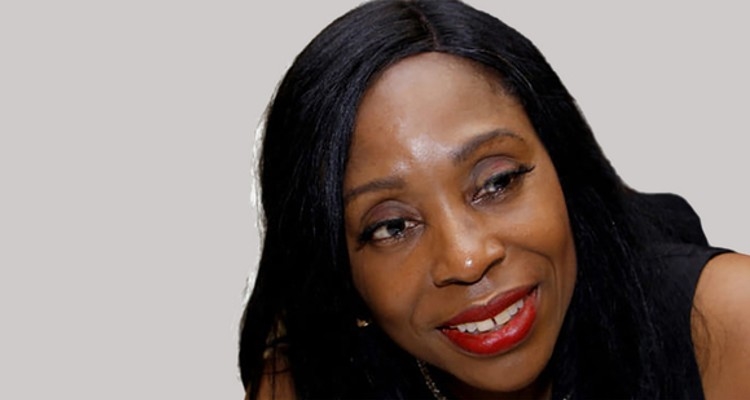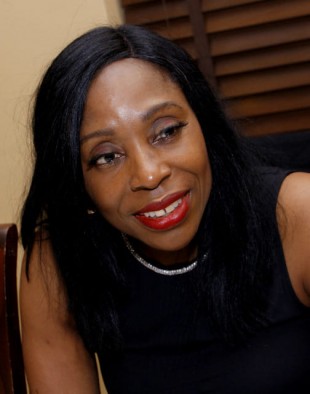Thu 14 Oct 2021

British-born with Nigerian heritage Ady Dike talks with pride about her professional achievements and advises BAME colleagues on their way to becoming the leaders they want to be
By Murielle Gonzalez
Ady Dike made it to the boardroom. In February, she joined the Government Internal Audit Agency (GIAA) as a non-executive director alongside Isobel Everett and Clare Minchington — three female leaders with a range of experience from different industries and sectors.
Dike is an Enterprise Agile Architect who coaches leaders and teams to transform their organisations to become more competitive. She has two decades of experience in operational, strategic and project management, and digital transformation.
There are many roles under her belt. For example, she worked as a desktop publisher and in the financial sector with Goldman Sachs and Standard Chartered Bank. Her experience in the not-for-profit and public sector includes governance and quality roles with the charity We are With You, formerly Addaction, and the NHS, to name a few.
A British-born with Nigerian heritage, she talks with pride about her professional achievements. However, Dike admits that impostor syndrome was the most challenging issue to overcome among all the barriers she encountered. "I now realised that those self-limiting beliefs made it feel harder for me. It was all in my head," she says.
How did you become a leader in tech?
In the past 15 or so years, I've been providing leadership coaching to tech teams in the field of digital transformation. I realised that data is crucial to everything we do, from helping to improve the services you provide to show others that you're delivering a quality service.
As I went into the commercial sector as a consultant, I realised that Agile was the predominant framework to manage projects — that's been my lens ever since.
I didn't do engineering or computer science, but I had the ability to provide leadership to multidisciplinary teams and build those relationships to make people feel valued. This expertise has been helpful in my non-executive role with the GIAA, providing greater insights and leveraging technology to drive better outcomes. 
What has been the most challenging issue that you faced building up your career?
I talked about this in a blog I wrote for the GIAA. I think women face several barriers. Some of them are cultural, and some of them are biases. But the most important barrier is the impostor syndrome. I felt that was one of the main ones for me.
Like many Black and minority ethnic women, earlier on in my career, I couldn't see many like myself in the roles I was aspiring to take on. At times this made me feel like I didn't fit in.
Part of that feeling came about from not having seen role models I could relate to. Now I realise that you don't have to look for role models within your industry. Instead, you can look at women from BAME backgrounds in other industries and seek mentors who can support you.
Have you felt that your race or gender has been used to hinder your progression?
I wouldn't say that race hasn't been an issue, but sometimes our perception of race can be the limiting factor.
Earlier in my career, I thought the middle class older White men were my problem — I felt that they didn't get me because I'm Black.
I didn't have great experiences with them either. I felt patronised in meetings, for example. I've since realised that part of the behaviour you see in men is because they are used to hold those positions of power, and they're blissfully unaware of the impact of interrupting a woman in a meeting, for instance. They genuinely don't know how it makes her feel, whether she's Black or White.
How did you deal with those experiences?
I took a more human view. The danger of being a woman is that, regardless of your gender politics, if you dehumanise the dominant group, you're falling into the same trap. And it doesn't help you to cultivate the relationships you need to progress in your career.
I used to do that. I just saw the faults and saw that men cut me up in meetings and I was focused on how it made me feel. But it was all in my head.
What's your advice to women who fall into this trap?
The only way a woman can exercise power is by coming out of the head. I'm not saying you should ignore your race, but it's about understanding that you're not there to deal with or eliminate their bias — we all have biases, and that should make you humble.
What's your advice to BAME colleagues that want to become leaders?
Stop seeing White men or White people as a statistic: see them as human beings.
Let people know who you are. Then, when they discuss who needs to be promoted, people who know you will put your name forward.
I think of people like Priti Patel. I don’t always share her perspectives, but I respect the fact that she has taken time to nurture relationships that support her at critical times. I think that's what will help BAME women into leadership.
What can BAME women do to help them become leaders?
Your job is not to get rid of biases or racism. Your job is to tackle the thing that is stopping you from being effective. Once you know what you want to do, where you want to go, and how you want to be seen, you will be more focused on doing what will get you there.
Look at Michelle Obama at the start of Obama's campaign. People were trying to portray her as an angry Black woman. She was lucky to have people around her to tell her to show the human side of herself. And when she did that, people loved her, and people could see she's a great inspirational leader.
What's the common pitfall you see in the leaders you coach?
One of the greatest mistakes that leaders make is thinking that they have to have all the answers.
Steve Jobs used to say, 'why employ people because they know more about you in a particular area, only for you to start telling them what to do'.
Leaders should glory that the people they work with have such deep subject matter expertise. They should see themselves as leaders who set the direction.
It's about asking your team about how we should go about the tasks at hand, which frees you up. It enables you to ask questions that really can help move the team towards their goals.
Is this particularly true for women?
Leadership is challenging for women who grow up believing they have to be perfect. I think women need to learn to be comfortable with not knowing everything but working to their strength.
Women are great at bringing out the best in people and handling different dimensions at one time. These traits can also work in their favour.
BAME into Leadership takes place on 21 October. Now in its eleventh year, the conference has established itself as the key event for those interested in enhancing the capabilities and leadership opportunities for Black, Asian and minority ethnic colleagues across the civil service and the wider public sector.
Explore the agenda, and register to attend in person or online.
ABOUT THE AUTHOR
Murielle Gonzalez, content strategy manager at Dods Diversity & Inclusion, is an experienced journalist and editor. She can be reached on murielle.gonzalez@dodsgroup.com.
View all news